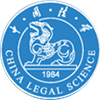摘要(Abstract):
中华法律文化是中华民族五千年法制创造活动的结晶。为了适应华夏民族遭遇的特定生存环境,为了解决华夏政治共同体面临的特定社会问题,中华法律文化形成了自己特有的"道德精英引导民众走向文明生活"的基本旨趣,形成了一系列出色的法律智慧。本文在简要阐发了中华法律文化的这一基本旨趣之后,又从天与人的关系、国与民的关系、国与吏的关系、民与民的关系四个方面简要阐发了中国法律文化尊重天道法则、谦抑政治权力、从严控制官吏、尊重基本人性、尊重民间自治、尊重民间契约、尊重民间规约及风俗习惯等一系列法律智慧。
关键词(KeyWords):
Abstract:
Keywords:
基金项目(Foundation):
作者(Author): 范忠信;Gong Mingyu;
Email:
参考文献(References):
- 1 WU SHUCHEN,CHINESE TRADITIONAL LEGAL CULTURE,at 33 ( Peking University Press,1994).
- ①2Chinese legal tradition is not equal to Chinese legal system.The“Chinese legal system”generallyrefers to the rechtsfamilien in East Asian countries bases on the Tang Code ( and the successive laws inthe Song and Ming Dynasty).
- ②3The division of five periods is inspired by Mr.Yu Ronggen.In 2000,when he was the chief editor ofCHINESE LEGAL HISTORY OF IDEAS ( Yu Ronggen,Fan Zhongxin and Liu Ducai eds,LawPress,2003),he brought the five phase concept based on Yang Honglie's“embryonic period”,“growing period”,and“invasion period by the western legal system”in CHINESE LAWDEVELOPMENT HISTORY ( Commercial Press,1930) and Chen Guyuan,Lin Yongrong and others'partition method,namely,“initiative period”,“developing period”,“finalizing period”and“revolutionary period”in CHEN GUYUAN,THE HISTORY OF CHINESE LEGAL SYSTEM( Commercial Press,1934 ) and in LIN YONGRONG,CHINESE LEGAL HISTORY ( privatereleased,1960).
- ①4FAN ZHONGXIN and CHEN JINGLIANG,CHINESE LEGAL HISTORY,forewords ( PekingUniversity Press,2007).
- ①5The emperor had three identities: the parent,the teacher and instructor.BOOK OF HISTORY·LIANG HUI WANG II cited from BOOK OF HISTORY·TAI SHI:“The Heaven was born into ahuman body to rule and to instruct the people”.BOOK OF HISTORY·HONG FAN:“The emperoris the parent for the people and the king under the heave”.
- ②6THE CHANGE·GE GUA·TUAN ZHUAN.
- ③7The man in question does not refer to individual but its plural form in the concept of“The Heaven,theEarth and the Man are three gifts”.In THE BOOK OF RITES·MEAN,it is descripted that“Theman can contributes the development of the Heaven and Earth,alongside the Heaven and Earthbecoming a third important element”.
- ④8FAN ZHONGXIN,BASIC SPIRITS OF CHINESE LEGAL TRADITION,at 15-20 ( ShandongPeople's Publishing House,2000).
- ⑤9FAN ZHONGXIN,THE GOVERNMENT AND THE PEOPLE: A STUDY OF CHINESETRADITIONAL ADMINISTRATIVE LAW CULTURURE,at 4 and 42 ( China Renmin UniversityPress,2012).
- ①10In this paper,we adopted clues of more universal values rather than the“Five Relations”,that is therelation between the monarch and his subjects,the relation between the father and son,the relationbetween the relation between brothers and the relation between friends.In the“Five Relations”placed little emphasis on such three important relations as the relation between the nation and thepeople,the relation between the community and individual,and the relation between strangers ( Therelations between the emperor and people and that of friends cannot fully explain the above threerelations).On the other hand,three out of the five relations focused on family relations with only twodealing with political and social relations,show its historic limitations.
- ②11TAO TE CHING:“Man follows the earth.Earth follows the universe.The universe follows the Tao.The Tao follows only itself.”BOOK OF SONGS·XIAO YA·HUANG YI:“The people are simpleand unsophisticated,living in accordance with its natural laws.”MO-TSE·MING GUI II:“followthe laws of nature”.THE BOOK OF HAN·CRIMINAL LAW:“The sages follow the order of thenature to make the Five Rites and the condemn of the nature to establish the Five Punishments”.
- ①12WEN ZI·SHANG YI:“The law comes from the integrity; the integrity from the public behaviors,and public behaviors from individual's will”.HUAI NAN TZU·DECREEDS OF TAI:“The lawmade by the former emperor upholds what the people advocate and prohibits what the people distain”.
- ②13ZHAI TONGZU,LOCAL GOVERNMENTS IN THE QING DYNASTY,at 259-262 ( Fan Zhongxin etal trans.,Law Press,2011).
- ③14THE BOOK OF RITES·ORDER:“No litigation is allowed…in the second month of spring”;“misdemeanors are trialed…in the first month of summer”;“criminals are killed and offenders areseverely punished…in the first month of autumn”; and“those who deserve capital punishment willbe executed…in the second month of winter.”
- ④15In THE BOOK OF HAN·CRIMIAL LAW,it is recorded that“criminals are convicted in theautumn instead of the first month of spring”and that“misdemeanors were trialed at the SummerSolstice”.
- ⑤16WARDEN DECREE citied by THE TANG CODE·TRIAL.
- ①17MENG TZU·JIN XIN II.
- ②18See THE ANCIENT BOOK OF HISTORY·SONG OF FIVE SONS,HSUNTZU·IMPERIAL SYSTEMand MENG TZU·JIN XIN II.
- ③19MENG TZU·GONGSUN CHOU II.
- ④20HSUNTZU·IMPERIAL DOMINATION.
- ①21As Professor Qin Hui concludes,“The imperial power did not reach counties; the clans dominatedcounties; the clans ruled counties autonomously; the autonomy were based on ethics; and ethics areled by the noble.”See QIN HUI,TEN ARGUMENTS ON TRADITIONS,at 3 ( Fudan University Press,2003).American histories Goode also considered that“In the Chinese empire,administrativemachinery were not established in counties while the clans safeguard the security and order.”SeeGOODE,J.W,FAMILY,at 166 ( Social Sciences Academic Press,1986).
- ②22Max Weber held that“The imperial administration only prevailed cities and sub-city areas,whoseauthority were much weakened beyond defensive walls”.See MAX WEBER,CONFUCIANISM ANDTAOISM,at 110 ( Jiangsu People's Publishing House,1993).23
- ③23Li Xuemei,Studies on Local Procedure Decrees : Monument Decree System,11 Legal History Symposium487-519 ( 2011).
- ④24ZHANG ZHONGQIU,CIVIL AND COMMERCIAL LAW IN THE TANG DYNASTY,at 129 ( LawPress,2002).
- ⑤25Fan Zhongxin,Kin Concealment In Chinese And Western Legal Traditions,3 Social Sciences inChina ( 2008).
- ①26FAN ZHONGXIN,THE BASIC SPIRIT OF CHINESE LEGAL TRADITION,at 313-318 ( ShandongPeople's Publishing House,2001).
- ②27Guo Hao,Studies on Administrative Wand System In The Han Dynasty,3 Historiography Symposium( 1997).
- ③28EMPEROR ZHU YUANZHANG,RESCRIPT FOR THE OLD AND THE POOR,in CHINESE LAWCLASSIS VOLUME III,at 64 ( Liu Hainian and Yang Yifan comp.Science Press,1994).
- ④29See THE BOOK of History·PUNISHMENT OF LV,THE SPRING AND AUTUMN ANNALS·YEAR ONE OF AI GONG,and THE ANALECTS·ZI ZHANG.
- ⑤30See THE BOOK OF RITES·WEN WANG SHI ZI and HAN FEI-ZI·FIVE VERMIN.
- ⑥31THE BOOK OF SUI·CRIMIAL LAW.
- ⑦32CHEN SHUDE,STUDIES ON LAW IN NINE DYNASTIES,at 115 ( Zhonghua Book Company,2006).
- ⑧33BOOK OF THE LATER HAN·WISE EMPEROR and BOOK OF THE LATER HAN·LOYALTY.
- ⑨34ZHANGJIASHAN BAMBOO SLIPS·TWO-YEAR DECREES·THE LAW:“The convict on deathroll cannot appeal himself,whose families including parents,brothers,sisters,husband,wife andson can,and the request to appeal will be conferred.”THE BOOK OF JIN·CRIMINAL LAW:“Ifthe suspect is convicted a sentence more than two years,his parents can appeal.”
- ①35THE BOOK OF JIN·CRIMINAL LAW:“To reinforce the code of ethics,the sentence is convictedaccording to the five degrees of mourning”.And,that“the sentence is convicted according to thefive degrees of mourning”cannot be simply treated as“humanity tarnish by the feudal code ofethics”,because family closeness liability still remain general prescriptions in torts between relativesin criminal laws in many European counties.See Yan Zhongxin,Ethical Hierarchy and RelativeTorts : Correlation Between China and The West,3 Chinese Journal of Law ( 1997).
- ②36THE BOOK OF WEI·CRIMINAL PUNISHMENT.
- ③37THE TANG CODE·CRIMINAL LAW.
- ④38Id.
- ⑤39Id.,FAMILY MARRIAGE LAW.
- ⑥40THE GREAT MING CODE·FAMILY LAW·HOUSEHOLDS LEVY.
- ⑦41Id.,MARRIAGE.
- ⑧42QING LAW·CRIMINAL LAW·LITIGATION.
- ⑨43THE TANG CODE·CRIMINAL LAW; NIIDA NOHOLU,TOULEI SIUYI,at 715 ( Li Jin andHuo Cunfu trans.,Changchun Press,1983).
- ①44THE BOOK OF RITES·MEAN; THE ANALECTS·YAN YUAN; HSUNTZU·JUN DAO.
- ②45HAN FEI ZI·WAI CHU SHUO YOU II.
- ③46Supra note 37,OFFICIAL SYSTEM.
- ④47Supra note 40,OFFICIAL LAW·OFFICIAL SYSTEM.
- ⑤48DAI YIZONG,HISTORY DICTIONARY OF TWENTY-SIX DYNASTIES·INSTITUTES AND SYSTEMS,at 667-675 ( Jilin People Press,1993).
- ①49Supra note 37,MISCELLANEOUS LAW.
- ②50Id.,FAMILY MARRIAGE LAW.
- ③51CHEN SHUDE,STUDIES ON LAWS OF NINE DYNASTIES,at 130 ( Zhonghua Book Company,2003).
- ④52Supra note 37,OFFICIAL SYSTEM.
- ⑤53THE GREAT MING CODE·OFFICIAL LAW·OFFICIAL SYSTEM; QING LAW·OFFICIALLAW·OFFICIAL SYSTEM.
- ①54Wu Zhaoqing,Challenge System in The Qing Dynasty,1 Palace Museum Journal ( 1997).
- ②55CHEN SHUDE,STUDIES ON LAWS OF NINE DYNASTIES,at 128-129 ( Zhonghua Book Company,2003).
- ③56Supra note 37,OFFICIAL SYSTEM.
- ④57THE GREAT MING CODE·OFFICIAL LAW·OFFICIAL SYSTEM; QING LAW·OFFICIALLAW·OFFICIAL SYSTEM.
- ⑤58GU YANWU,DAILY UNDERSTANDINGS·PROVINCIAL GOVERNORS:“[Supervisory officers]rank low but shoulder important obligations and titled less but authorized more.These two trends arecorrelated and balancing with each other both inside and outside the imperial courts…Low rankinginspires spirits and great authority contributes to political aspiration.”
- ⑥59QIU YONGMING,SUPERVISORY SYSTEM HISTORY OF ACIENT CHINA,at 437 ( ShanghaiPeople Press,2006).
- ⑦60Liu Changjiang,A Brief Analysis of Hearsay Punishment System in Feudal China,1 SichuanUniversity of Arts and Science Journal ( 1997) ; Liu Changjiang,on Hearsay Punishment System inFeudal China in the Qing Dynasty,5 Journal of Linyi University ( 2004).
- ①61Zhou Yongjin,Supervisory Official Selection in Qing Dynasty,2 Journal of Baoding normal University( 2009).
- ②62QIAN DAQUN,EXPOSTULATION SYSTEM AND GOVERNMENT OF ZHENGUAN: CHINESEAND WESTERN LAW TRADITION II,at 135-151 ( China University of Political Science and LawPress,2002).
- ③63Supra note 46.
- ④64Supra note 42.
- ⑤65Supra note 37,TIRAL.
- ①66Supra note 57.
- ②67NIU RUNZHEN,HISTORIOGRAPHER SYSTEM DEVELOPMENT FROM HAN DYSNATY TO EARLYTANG DYNASTY,at 208-213 ( Hubei Education Press,1999).
- ③68Some scholars believe that“In fact,there existed two kinds of order and strength in traditionalChinese society: the‘official rule’order or national power v.s.the local order or civil forces.Theformer,imperial power-oriented,formed a top-down hierarchical structure; the latter,family-centered,living together formed a“honeycomb structure’in the village self-government community.Those who connected these two forces orderly were local elites.”VIVIENNE SHUE: SKETCHES OFTHE CHINESE BODY POLITIC,at 178 ( Stanford University Press,1998).
- ①69ZHU YONG,CLAN LAW IN THE QING DYNASTY,at 170-177 ( Hunan Education Press,1988).
- ②70CHEN HUILIN,GEO-SOCIAL FOR DISPUTE SETTLEMENT STUDY: MING AND QING DYNASTIES,at 326-350 ( China Politics and Law University Press,2009).
- ③71FEI XIAOTONG,CHINESE GENTRY,at 156-166 ( Zhao Xudong trans.,Joint Publishing 2009) ;QU TONGZU,QING LOCAL GOVERNMENT IN QING DYNASTY,at 290-295 ( Fan Zhongxin et altrans.Law Press,2011).
- ④72ZHANG ZHONGQIU,TANG DYNASTY ECONOMIC CIVIL LAW,at 129 ( Law Press,2004).
- ⑤73NIIDA NOHOLU,TOULEI SIUYI,at 789.
- ⑥74The HISTORICAL RECORDS·MERITORIOUS STATESMEN TABLE; BOOK OF JIN·CRIMINALLAW.
- ⑦75Supra note 37,MISCELLANEOUS LAW.
- ⑧76YUE CHUNZHI,ON TANG CIVIL LAW SYSTEM,at 220-222 ( People's Publishing House,2006).
- ①77ANALECTS·STUDY:“To keep a friend,to keep your words”; MENCIUS·TENGWEN GONG I:“There should be affection between fathers and sons,affiliation between monarchs and courtiers,distinction between husbands and wifes,order between seniors and juniors,and trust amongst friends.”
- ②Xu Guangxian,Land Sales Prescriptions in Contract Law in the Qing Dynasty : Study on Red ContractSystem,1 Politics and Law Forum ( 2008).
- ③79Guo Chengwei and Cui Lanqin,Divorce System in Ancient China,4 Politics and Law Forum ( 2010).Itis said that the“Three Anti-Abandonments”reduced to adultery after the Yuan dynasty.

